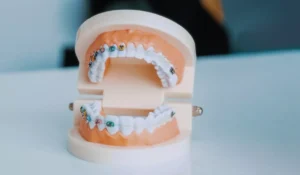An apology has unmeasurable power in the ability to move forward from negative situations. I firmly believe a good apology is second best to forgiveness. One may say that you can only forgive a person when a good apology is included, but that is not actually true, forgiveness is something that comes within you and doesn’t always mean the other person has felt apologetic for their actions. A true apology is something that builds a bond between people and forgiveness doesn’t always build a stronger bond.

All too often I have been caught in the cross fires of a heated battle regarding a variety of topics, when people are passionate about topics they tend to let their fiery side come out and mean things can be spoken or typed. I talk a lot about “living the example I want my kids to be” and this theory holds true with apologies. One of my biggest pet peeves is that one cannot apologize if they include a but in the sentence, here’s an example of an apology gone wrong;
I’m really sorry I called you those names but you were being unreasonable and you just made me so angry. You shouldn’t have made me that angry and I wouldn’t have called you those names.
Can you see how an apology like that one would not leave the person feeling as if that friend is genuinely sorry for their actions? When you make the decision to apologize to someone it means that you are truly sorry for your actions and you can see the wrong doing on your part, when you include a but in that sentence that simply turns the blame back onto the person you were supposedly trying to apologize to. Passing the blame or making excuses is not proper etiquette for apologizing.
Follow these simple rules when apologizing and you will find stronger bonds between yourself & your kids, as well as yourself and other adults;
- Only apologize for actions you are truly sorry for.
- Accept that you were wrong for having done whatever it is you did and that you will try harder next time.
- Be kind, use a tone of voice that has an apologetic ring to it; tone of voice & body language says a lot.
- Try not to make the same mistake twice; once you have truly apologized work to ensure it doesn’t happen again.
There are times when I am off my rocker stressed out and in crazy Mama Bear mode, I am not a perfect parent nor am I a perfect human being. I admit my faults and I do my best to apologize when wrong. One area that I personally am working on as a parent is to apologize for my wrong actions without blaming the situation that caused my reaction. For example, if I were to yell at my kids because I was just at my point of “had enough” but they didn’t really deserve having their Mom raise her voice, I will simply apologize like this – “I am sorry for my reaction, I shouldn’t have yelled, that wasn’t the proper way to handle the situation. I love you guys and I will try harder to use a better tone of voice next time”. Then when next time rolls around, I work to ensure that my tone of voice is proper for the scenario. My kids have learned to respect me because they know I respect them. My kids have learned to apology correctly and take blame for their own actions because I do the same.
I am sure others may have good tips on how to properly apologize, what would you add to my list of items to share with others on how to apologize in a proper way?
“Image courtesy of Stuart Miles/ FreeDigitalPhotos.net”.




Apologies are awesome if they’re sincere!! I am not afraid to admit I’m wrong. The kids know if you’re being sincere or not, and they know when you’ve goofed. Letting them see I’m human is no big deal to me, cuz I am (human). Well, unless I haven’t had my morning coffee… hahaha, kidding. 🙂
These are great tips! I think sometimes people really don’t know how to apologize.
Great tips and I totally agree the “but” cancels out the apology.
YES! “but” is not an apologetic word. It is an excuse word.
I absolutely agree and have taught my kids that a but cancels out an apology.
I have told my children that so, so many times. It’s not a sincere apology if you’re still qualifying it with reasons and justifications.
These are some awesome tips! I think a lot of people don’t know how to apologize or when they do they just simply don’t mean it. And, I hate it when someone uses “but” when they’re apologizing, it’s kinda rude.
Guilty! I often add in “but” to explain myself. Sigh ….
Great advice. The ‘but’ always shows some tinge of one not being truly sorry. I especially like the point to “accept that you were wrong for having done whatever it is you did and that you will try harder next time”.
Great tips and I totally agree.
This is something I certainly hope to instill in my children, especially when it comes to apologizing to one another.
I apologize when needed with the kids. It shows them that I’m human too and even I make mistakes.
Definitely agree. I can’t stand it when someone tries to apologize but ends up continuing the argument because they use it as another attempt to correct what I said or did with a “but”. Drives me nuts!
I know I’ve been guilty of using “but” when apologizing before. I try really hard not to, though.
A “but” in an apology is not an apology. I’m not perfect and make mistakes and am sure I have thrown a “but” in one, but I try not to and to be very sincere when I apologize.
Ya i agree a But can truly cancel out an apology for sure!! Great tips here!!
Tone is very important. You can say something, but if you do not have the right tone, everyone knows you are not sorry.
I agree, a bad apology is worse than no apology. It’s like rubbing salt in the wound.